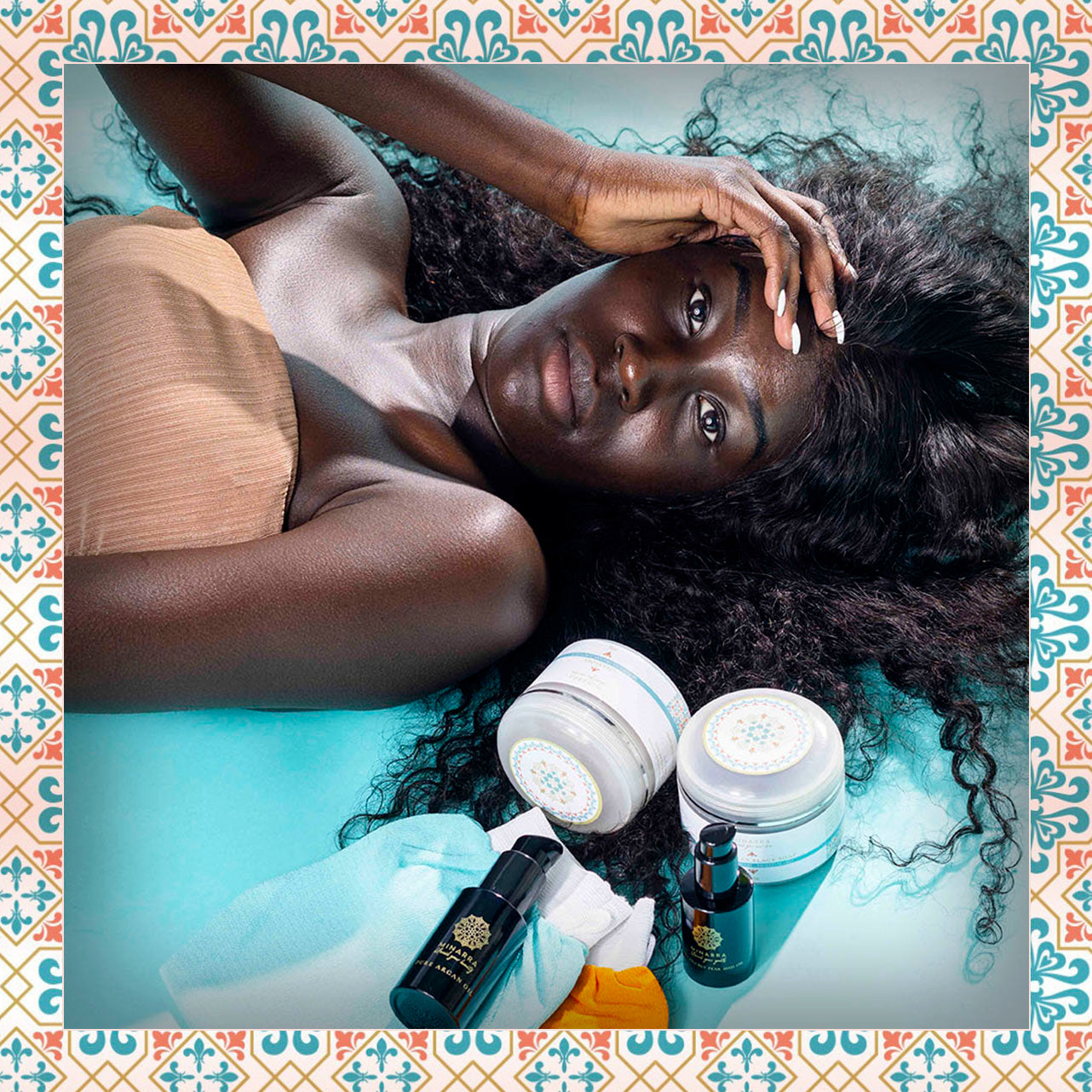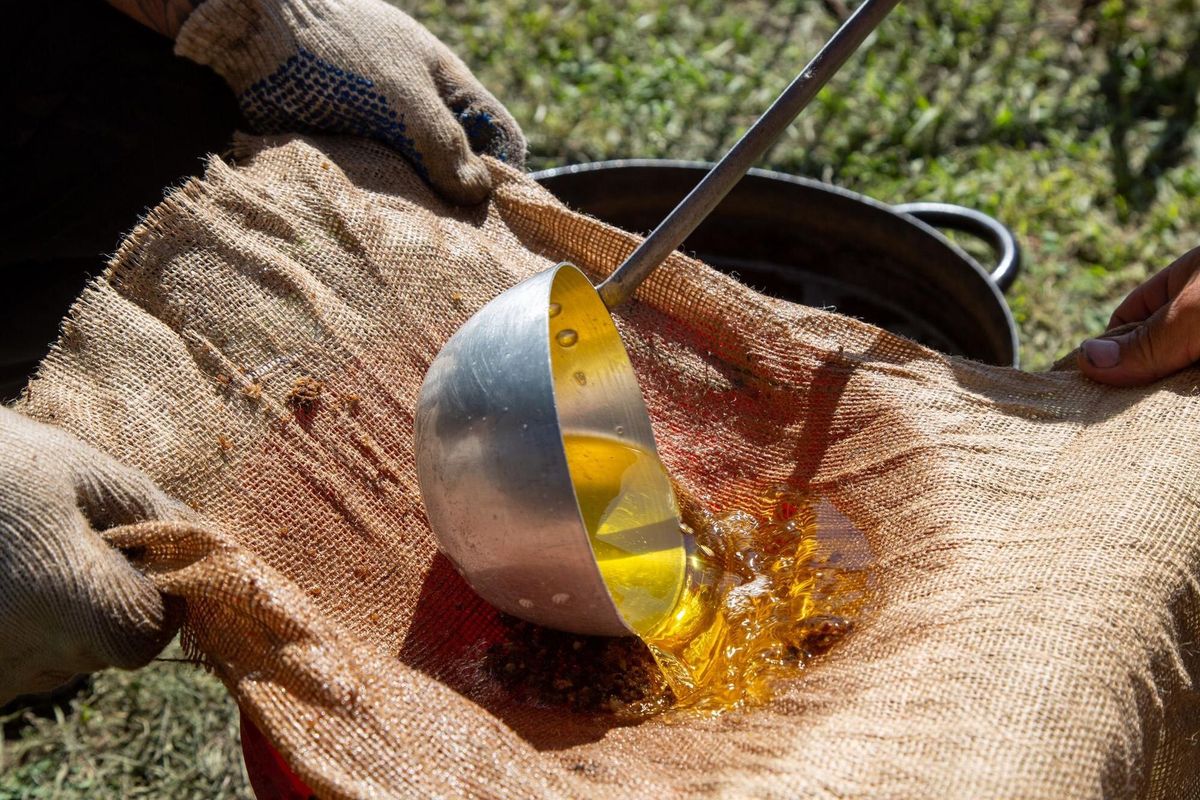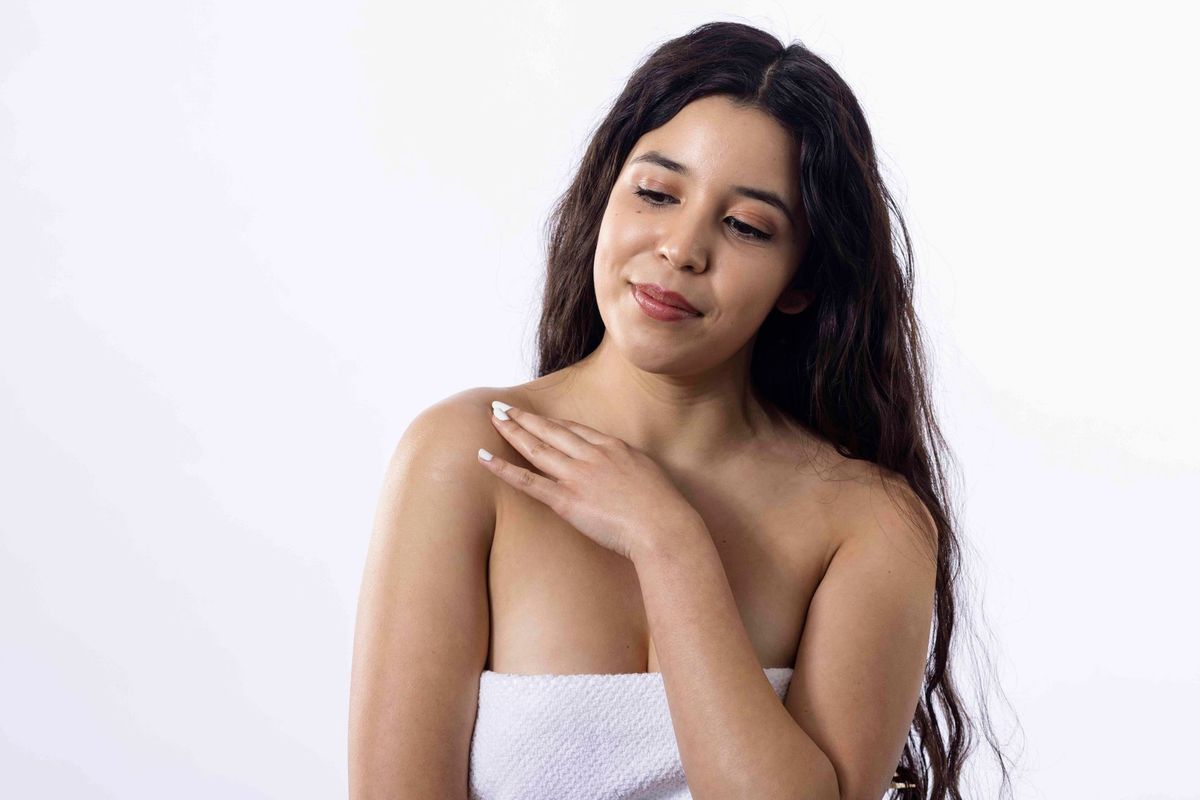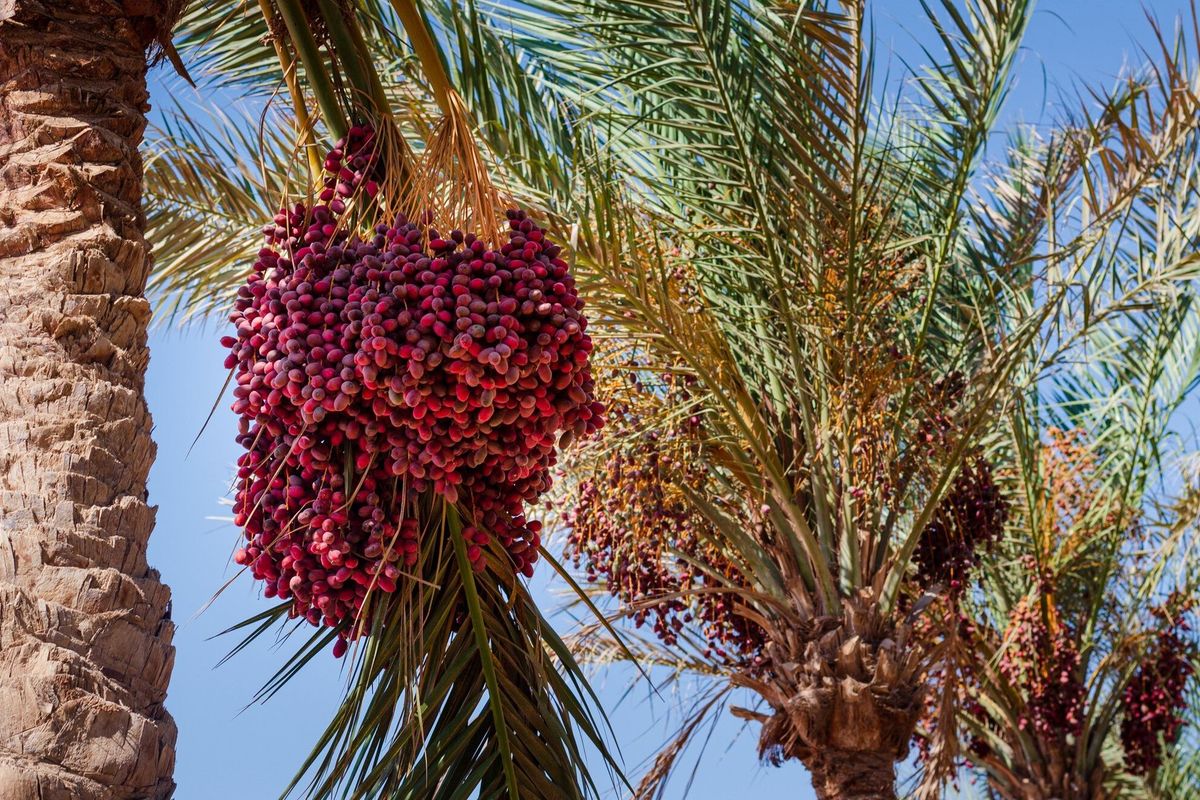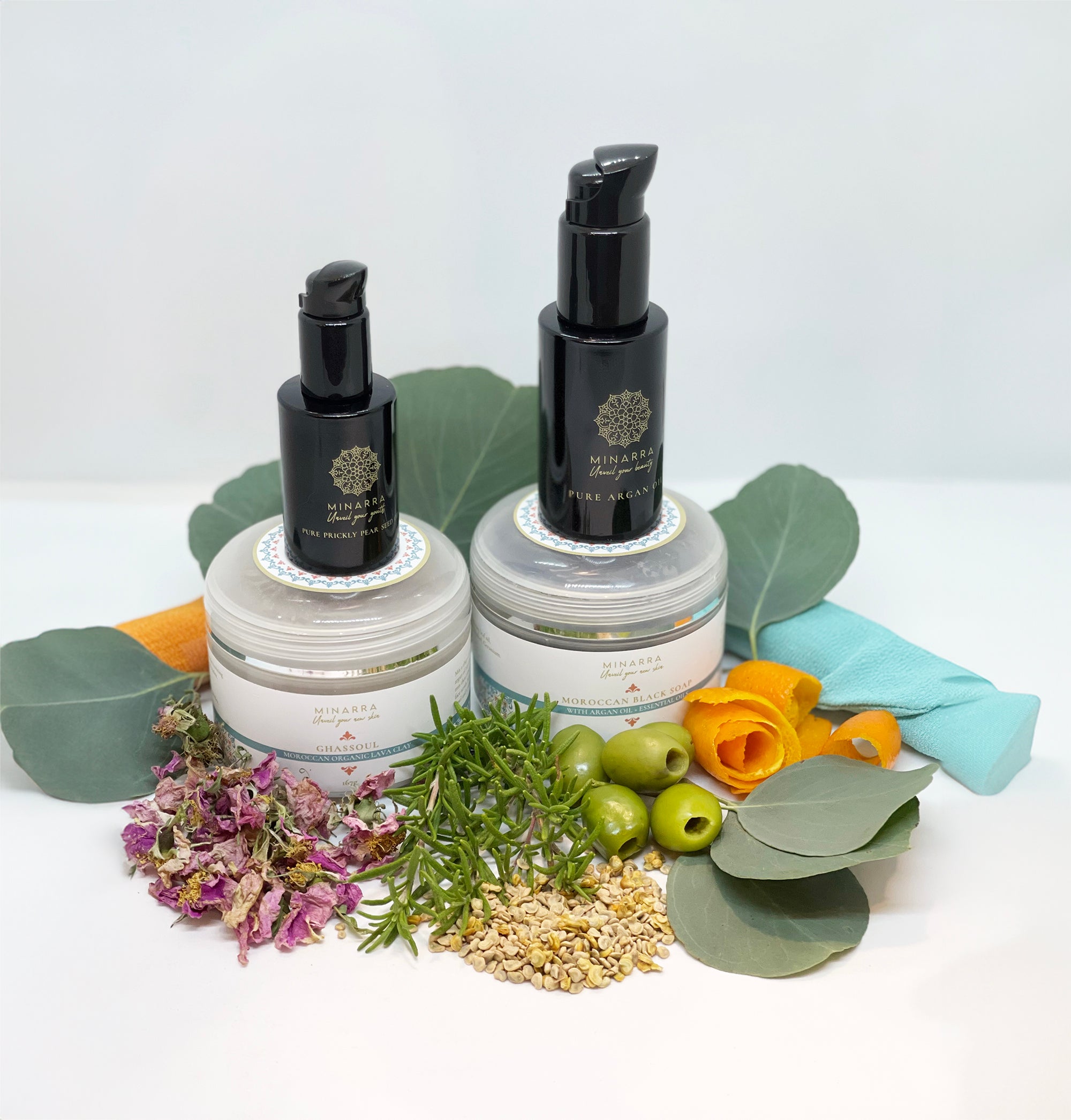Understanding Argan Oil
Argan oil comes from the kernels of the Argania spinosa tree, which thrives in Morocco. It's a unique oil, known for its versatility in both beauty and culinary fields. This golden liquid is cherished worldwide for its moisturizing and health-boosting properties.
In local Moroccan communities, argan oil is more than just a product; it's a tradition. Women-led cooperatives have played a crucial role in its extraction, supporting local economies and preserving cultural heritage. This collaboration empowers women and ensures sustainable practices.
Argan oil's dual uses make it stand out. As a cosmetic ingredient, it's celebrated for hydrating skin and enhancing hair health. Rich in omega-6 fatty acids and vitamin E, it nourishes, rejuvenates, and protects against environmental stressors. Its anti-aging and healing properties have made it a staple in natural beauty routines.
In the kitchen, its nutty flavor adds a delightful touch to dishes, like the traditional Moroccan amlu. This makes it not only a beauty elixir but also a culinary delight.
Ethically sourced and crafted with care, argan oil's quality and authenticity are paramount. Minarra's commitment to these values ensures that every drop of argan oil used in our products maintains the highest standards, respecting both the environment and the people who produce it.
Origins of Argan Oil Production
Argan oil production starts with the Argania spinosa tree, thriving in the semi-desert regions of southwestern Morocco. These trees are vital for the environment, combating desertification and promoting biodiversity. The production process is a cherished tradition in Moroccan culture. It involves community collaboration during the harvest season.
Here's how argan oil comes to life:
-
Harvesting: The journey begins with the collection of the fruit. Locals gather the fallen fruit from the ground, ensuring a sustainable approach without damaging the trees.
-
Drying: Once collected, the fruit is left to dry under the sun. This step is crucial as it makes the outer flesh easier to remove.
-
Cracking: The dried fruit is then manually cracked open to access the nuts inside. This labor-intensive step is often performed by women in cooperatives, using skills passed down through generations. To learn more about how these traditional methods empower local women, explore our article on the transformative role of argan oil in Moroccan communities.
-
Extraction: Inside these nuts are kernels, the source of argan oil. These kernels are cold-pressed to extract the oil, preserving its nutritional value and purity.
-
Refinement: The resulting oil undergoes a filtration process to ensure clarity and quality, ready to be used in cosmetics or culinary applications. For a deeper understanding of the nutritional profile and benefits of argan oil, you can read our complete guide to the origins of argan oil.
This meticulous process not only delivers high-quality oil but also supports the local economy. Minarra's dedication to ethically sourced ingredients ensures that every drop of our argan oil respects these traditions and environmental practices.
Traditional and Modern Extraction
Argan oil extraction involves both traditional and modern methods, each with its unique significance. Traditionally, extraction was a manual process deeply rooted in Moroccan culture. Women often led this labor-intensive task, using stones to crack open the argan nuts and grind the kernels by hand. This method is not just about producing oil; it’s a vital part of cultural heritage and community life.
The traditional process includes:
- Cracking: Women use stones to open the nuts, a skill passed down through generations.
- Grinding: The kernels are ground into a paste, often by hand.
- Pressing: The paste is kneaded by hand to extract the oil, a time-consuming task that requires patience and skill.
In contrast, modern extraction uses mechanical cold-pressing techniques. This method enhances efficiency and ensures the oil retains its rich nutrient profile. Mechanical pressing is quicker and increases oil yield. It also helps in extending the oil's shelf life, making it more commercially viable. For a deeper understanding of how these methods contribute to the health and beauty benefits of argan oil, including its use in skincare and hair care routines, explore our detailed insights.
- Mechanical Cold-Pressing: This involves machines that press the kernels, preserving the oil's quality.
- Increased Yield: Modern techniques extract more oil from the same amount of kernels.
- Nutrient Retention: These methods ensure the oil retains its beneficial properties, like omega-6 fatty acids and vitamin E.
Both methods have their place in the production of high-quality argan oil, each honoring its own set of values and benefits. Minarra values the balance between preserving cultural traditions and embracing innovative techniques to deliver the finest argan oil. Discover more about the cultural and ethical aspects of argan oil production, including the empowerment of Moroccan women through traditional methods and the importance of supporting women's cooperatives.
Role of Women's Cooperatives
Women's cooperatives play a vital role in the argan oil industry in Morocco. These groups are more than just production units; they are the backbone of the community, transforming lives and nurturing sustainable practices. By managing everything from harvesting to oil extraction, they ensure the quality and authenticity of each batch of oil produced.
In these cooperatives, women have found not only economic empowerment but also a platform for social change. They gain financial independence, which has a ripple effect on their families and communities. This economic boost allows them to invest in education, healthcare, and better living conditions.
What makes these cooperatives special:
-
Economic Empowerment: Women earn fair wages, helping them support their families and enhance their quality of life.
-
Skill Development: Members learn and refine skills in traditional and modern oil extraction methods, preserving cultural heritage.
-
Community Building: Cooperatives foster a sense of community, where women support each other and work collaboratively.
-
Cultural Preservation: By adhering to traditional methods, these cooperatives help keep Moroccan heritage alive.
-
Environmental Stewardship: They emphasize sustainable practices, ensuring that argan oil production is eco-friendly and respects the local ecosystem.
Minarra proudly partners with these cooperatives, ensuring that each bottle of argan oil we offer is a testament to the dedication and craftsmanship of these women. Their hard work not only brings you high-quality products but also supports a sustainable and ethical industry. To learn more about the transformative power of argan oil in cosmetics and its benefits, explore our insights on argan oil's role in beauty.
Chemical Composition of Argan Oil
Argan oil's magic comes from its rich chemical composition. It's loaded with unsaturated fatty acids, tocopherols (vitamin E), and antioxidants. These elements work together to offer fantastic benefits for both nutrition and beauty.
Unsaturated fatty acids keep skin and hair hydrated. They help lock in moisture and improve elasticity. This leads to smoother skin and healthier, shinier hair. Tocopherols, especially vitamin E, are powerful antioxidants. They protect skin from free radicals, reducing signs of aging. This means fewer wrinkles and healthier skin.
Antioxidants in argan oil also soothe skin irritation and inflammation. They support healing and protect against environmental stressors. For a deeper understanding of how Moroccan oil treatment uniquely benefits skin and hair, you can explore our detailed explanation of its unique properties here.
Argan oil's physicochemical properties matter too.
-
Density: This affects how the oil feels on the skin. A lighter density makes it easy to absorb without leaving a greasy residue.
-
Saponification Value: This indicates the oil's ability to form soap. A high value is beneficial for cleansing products.
These properties ensure the oil's stability and effectiveness. Minarra's focus on pure, high-quality argan oil means you get all these benefits while enjoying a product that's as good for the planet as it is for you.
Cosmetic vs Culinary Argan Oil
Argan oil is versatile, bringing its magic to both skincare and the kitchen. Each type is crafted with its purpose in mind, ensuring you get the best of what argan oil offers.
Cosmetic argan oil is all about skincare. Extracted from cold-pressed, unroasted kernels, it maintains its pure and natural essence. This method preserves the oil's rich content of omega-6 fatty acids and vitamin E, making it a powerhouse for moisturizing and anti-aging. It soothes skin, reduces inflammation, and keeps those fine lines in check. A few drops are all you need to enjoy softer, glowing skin. For more insights into the transformative benefits of argan oil for hair and skin, explore our complete guide to using Moroccan argan oil for hair.
Culinary argan oil, however, is a different experience. The kernels take a trip to the roaster before pressing, giving the oil a unique nutty flavor. This makes it perfect for adding a rich taste to dishes. Drizzle it over salads or use it to enhance traditional Moroccan recipes like amlu. It's not just about flavor; it's about bringing a touch of Morocco to your meals.
- Cosmetic Argan Oil: Cold-pressed, unroasted kernels for skincare.
- Culinary Argan Oil: Roasted kernels for a nutty flavor in cooking.
- Benefits: Moisturizing and anti-aging for cosmetic; rich taste for culinary.
Understanding these differences helps you choose the right argan oil for your needs. Whether you're nourishing your skin or elevating your cooking, argan oil brings quality and authenticity.
Ensuring Oil Quality and Authenticity
Argan oil is renowned for its nourishing properties, but its high value means that ensuring its quality and authenticity is crucial. The market is rife with counterfeit products that dilute the oil's purity. It's essential to understand what makes argan oil genuine.
Quality control is at the heart of maintaining authenticity. Testing the oil's chemical composition and stability is vital. These methods help verify the oil's purity, ensuring it remains untainted by cheaper oils. Maintaining this purity is a rigorous process but necessary to uphold the oil's integrity. To delve deeper into the rich tradition and authenticity of Moroccan beauty products, including argan oil, you can explore our guide to finding Moroccan beauty products online, which provides practical tips on ensuring product authenticity.
There are several steps involved in ensuring the authenticity of argan oil:
-
Chemical Analysis: This involves testing for specific markers that indicate purity, like the presence of fatty acids and vitamin E.
-
Physical Inspections: Checking the oil's color and viscosity can reveal adulteration.
-
Certification: Genuine argan oil often comes with certifications that guarantee its origin and purity.
Consumers should be aware of these checks to make informed choices. Recognizing genuine argan oil helps avoid falling for misleading labels and substandard products. Minarra is dedicated to maintaining these high standards, ensuring our customers receive only the best quality oil. For more insights into the benefits and uses of our Moroccan Argan Oil, you can learn more about Minarra's Moroccan Argan Oil, known for its deeply moisturizing and anti-aging properties.
Oxidative Stability and Shelf Life
Argan oil's stability is crucial for maintaining its quality and effectiveness. Its chemical composition, packed with unsaturated fatty acids and antioxidants, plays a big role in this. These elements help prevent oxidation, which is key to prolonging the oil's shelf life and keeping its benefits intact.
Unsaturated fatty acids in argan oil are like natural moisturizers. They help the oil stay fresh and potent, reducing the risk of it going rancid. Antioxidants, such as vitamin E, also protect the oil from environmental factors that could degrade its quality. For a deeper understanding of how these natural ingredients benefit various skin types, you can explore the Moroccan skincare benefits explained for all skin types, which highlights the holistic approach of Moroccan skincare.
To ensure the longevity of argan oil, it’s important to store it properly. Keep it in a cool, dark place, away from direct sunlight and heat. This helps preserve its nutrients and keeps it from spoiling.
Here’s how to assess the quality of your argan oil over time:
-
Check the Color: Genuine argan oil has a golden hue. If it looks cloudy or has changed color, it might have oxidized.
-
Smell the Oil: Pure argan oil has a mild, nutty aroma. A strong or sour smell could indicate it's gone bad.
-
Feel the Texture: It should feel smooth and non-greasy. If it feels sticky or thick, it might have lost some of its properties.
Maintaining the quality of argan oil ensures that you enjoy its full range of benefits, whether for beauty or culinary purposes. Minarra's commitment to high standards and quality control means you can trust our argan oil to last, providing you with consistent care and effectiveness.
Economic and Ecological Importance
Argan oil holds immense value both economically and ecologically, especially in Morocco. Economically, it serves as a lifeline for local communities, providing a steady income source through women's cooperatives. These cooperatives empower women, offering them financial independence and a platform for skill development. This economic boost ripples through families and communities, enhancing quality of life.
Ecologically, the argan tree is vital in preventing desertification and maintaining biodiversity. Its deep roots stabilize the soil, reducing erosion and supporting a diverse range of plant and animal life. The sustainable harvesting of argan oil ensures these ecological benefits continue, preserving the environment for future generations.
Here's how argan oil production supports both economic and ecological aspects:
-
Community Support: Income from argan oil production supports families, improving living conditions and access to education and healthcare.
-
Women's Empowerment: Cooperatives provide women with fair wages and skill development opportunities.
-
Environmental Conservation: Sustainable practices protect the argan tree, preserving its role in preventing desertification.
-
Biodiversity Maintenance: The argan ecosystem supports various species, contributing to ecological balance.
Minarra's commitment to ethically sourced and organic ingredients means that every purchase of our argan oil supports these vital economic and ecological efforts. The dedication to sustainability ensures that the benefits of argan oil extend beyond beauty, fostering a healthier planet and thriving communities. To delve deeper into the cultural roots and benefits of Moroccan beauty products, including argan oil, explore our insights on What to Know About Moroccan Beauty Products.
Key Takeaways on Argan Oil
Argan oil is a Moroccan treasure. We blend tradition and innovation to produce this nutrient-rich oil. The process begins with harvesting fruit from the Argania spinosa tree. We manually crack the fruit and cold-press the kernels to preserve the oil's beneficial properties.
Women's cooperatives are central to our production. They uphold ethical practices and empower local communities through fair wages and skill development. These cooperatives safeguard cultural heritage and champion sustainable production methods.
Quality and authenticity are vital for argan oil. We conduct rigorous testing and certification to guarantee purity and prevent counterfeits. This ensures you receive genuine, nourishing argan oil.
Argan oil production bolsters local livelihoods, particularly for women. Argan trees combat desertification and foster biodiversity. They're crucial for Morocco's semi-desert ecosystem.
Argan oil exemplifies sustainability, quality, and community support. Our commitment to ethical sourcing and sustainability ensures our argan oil is both effective and environmentally responsible.

